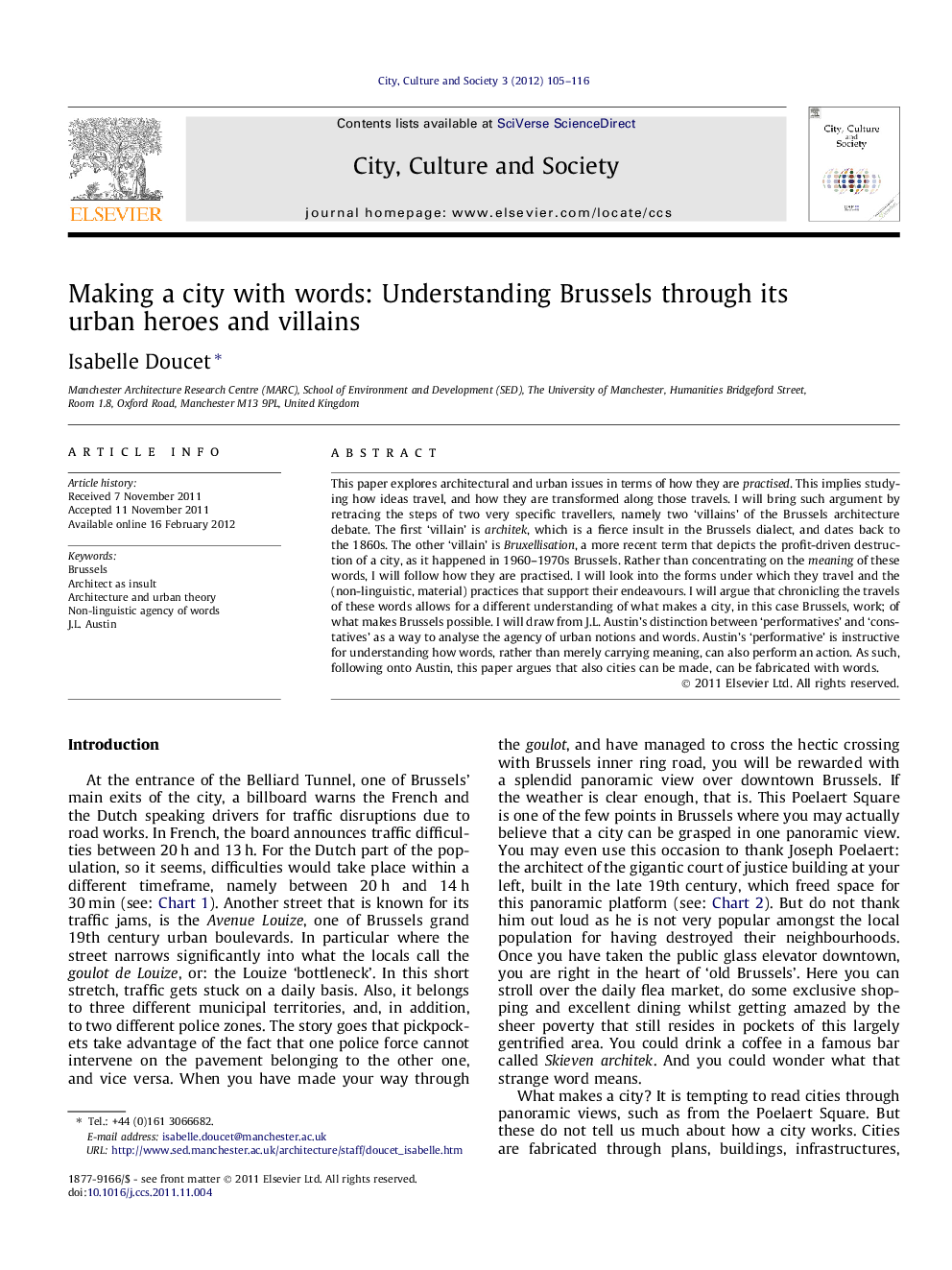| Article ID | Journal | Published Year | Pages | File Type |
|---|---|---|---|---|
| 5048403 | City, Culture and Society | 2012 | 12 Pages |
This paper explores architectural and urban issues in terms of how they are practised. This implies studying how ideas travel, and how they are transformed along those travels. I will bring such argument by retracing the steps of two very specific travellers, namely two 'villains' of the Brussels architecture debate. The first 'villain' is architek, which is a fierce insult in the Brussels dialect, and dates back to the 1860s. The other 'villain' is Bruxellisation, a more recent term that depicts the profit-driven destruction of a city, as it happened in 1960-1970s Brussels. Rather than concentrating on the meaning of these words, I will follow how they are practised. I will look into the forms under which they travel and the (non-linguistic, material) practices that support their endeavours. I will argue that chronicling the travels of these words allows for a different understanding of what makes a city, in this case Brussels, work; of what makes Brussels possible. I will draw from J.L. Austin's distinction between 'performatives' and 'constatives' as a way to analyse the agency of urban notions and words. Austin's 'performative' is instructive for understanding how words, rather than merely carrying meaning, can also perform an action. As such, following onto Austin, this paper argues that also cities can be made, can be fabricated with words.
⺠Cities are thought and imagined as well as performed and practised. ⺠Words travel in non-linguistic, material manners as much as they carry meaning. ⺠Words can perform an action (J.L. Austin) thus cities can be fabricated with words. ⺠Brussels is shaped by popular everyday words such as architek and Bruxellisation.
